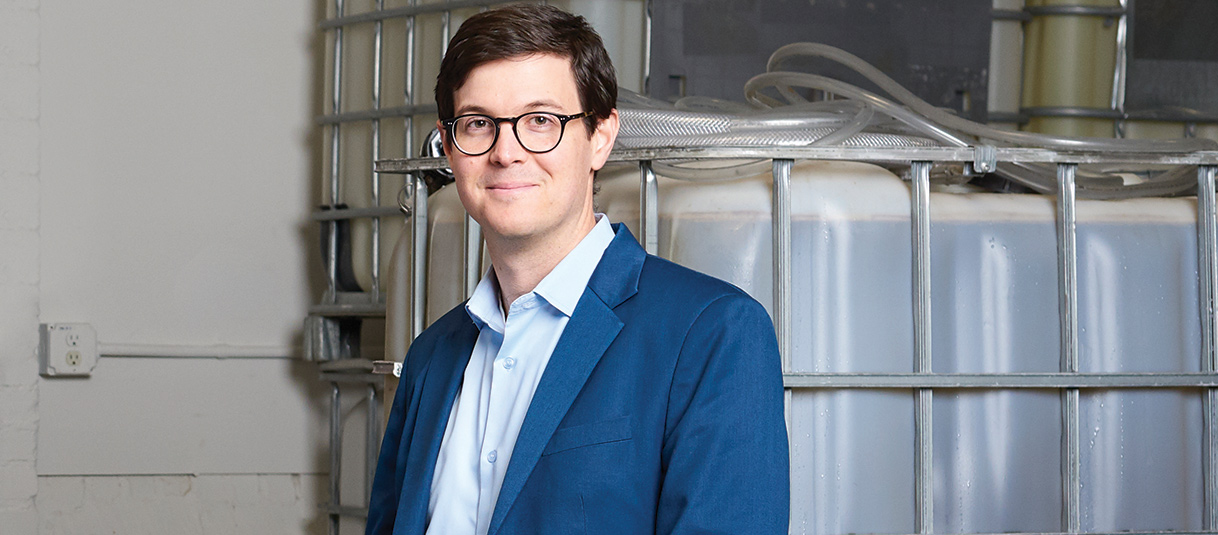BY EMILY AYSHFORD // view article PDF
As a graduate student in materials science and engineering, David Snydacker (PhD ’16) was excited about developing clean energy technologies. He conducted research on lithium-ion batteries in the Wolverton Research Group lab and led a seminar for students on energy storage, where he talked up the batteries as the energy technology of the future.
However, during his studies at Northwestern Engineering, students asked him question after question about the sustainability and geopolitics of lithium: If we move from oil to lithium, aren’t we just going to be overly reliant on a few producers, like we are now with oil? Will we run out of lithium? Friends on social media peppered him with similar questions.
Snydacker says, “My first instinct was to say, ‘That’s crazy. Lithium supply will respond to price like any other commodity.’ But when I dug in, I realized there wasn’t a lot of clarity in the lithium sector. That inspired me to look into lithium extraction.”
It turns out that lithium is abundant in salt brines, but the traditional process for extracting it is tedious and wasteful, involving large evaporation ponds and huge amounts of wastewater—a process ripe for innovation. In Snydacker’s work in the lab of Chris Wolverton, Jerome B. Cohen Professor of Materials Science and Engineering, he used its Open Quantum Materials Database to identify the best materials to absorb lithium out of brine.
When Snydacker graduated with his PhD, he used this knowledge to found Lilac Solutions, a mining technology company that manufactures ion exchange beads that extract lithium from brine. The company also created a proprietary brine processing system based on these beads that cuts costs and boosts lithium recovery.
He relocated to the San Francisco Bay Area to be closer to battery startups and received a grant from the US Department of Energy in February 2017 that allowed him to become the company’s full-time CEO. Since then, the Oakland, California-based company has continued to sign customers—current lithium producers looking to modernize operations, other industrial operators looking to extract lithium for the first time, and greenfield project developers— and has begun testing its system at one-tenth of industrial scale.
Earlier this year, Lilac announced it had raised $20 million in Series A funding, money to be used to develop a commercial-scale manu-facturing line for the ion exchange beads. “Our goal is to be the technology partner of choice for developers of lithium projects,” Snydacker says.
Though he had always dreamed of being part of a startup, Snydacker says he really cut his teeth in the McCormick School of Engineering’s NUvention: Energy course, which teams together students to create energy-related startups. “It took me out of the lab and made me fearless and relentless in making phone calls to early customers around the world,” he says.
Though exciting times lie ahead for his company, he still makes time to play music and hike with his family. Next, he hopes to use his company’s planned expansion from its current 11 engineers to 20 as a chance to recruit more Northwestern Engineering graduates. He says, “We want engineers who can help us develop lithium projects around the world.”

